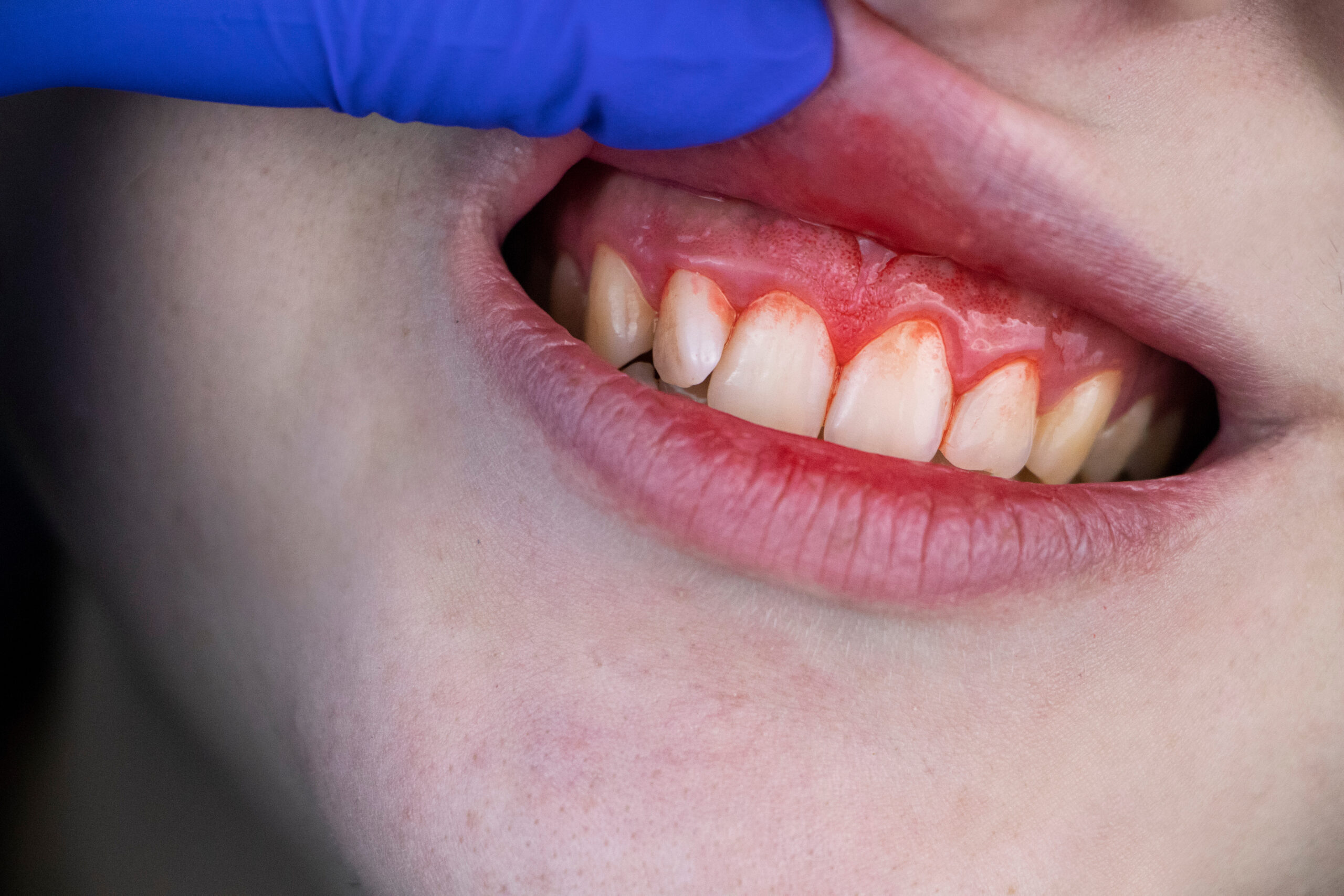Scurvy is a disease that develops due to a severe deficiency of ascorbic acid, better known as “vitamin C.” The human body cannot produce vitamin C, so it must be supplied with food. This substance participates in many biochemical processes that are important for the proper functioning of the entire system.
Nowadays, scurvy is a rare disease. It most often affects infants and older people. The development of scurvy is related to improper nutrition, as a result of which the body is not supplied with the appropriate amount of vitamin C. Scurvy development may also occur in people who are chronically addicted to alcohol and due to other diseases that lead to impaired absorption of nutrients in the intestines.
Sailors on lengthy ocean voyages in the past commonly suffered from scurvy due to a lack of citrus fruits aboard ships. This led to vitamin C deficiencies, which hampered long-distance sea travel. Although scurvy has been recognized since ancient times, it was not until the 18th century![]() that the connection between the disease and nutritional deficiencies was established, leading to effective preventive measures.
that the connection between the disease and nutritional deficiencies was established, leading to effective preventive measures.

Vitamin C is a vital substance that plays a crucial role in the optimal functioning of the human body. It serves many vital functions, and a deficiency in vitamin C can lead to severe consequences. Humans cannot synthesize vitamin C alone, unlike many other animals and plants. Hence, it is imperative to ensure adequate vitamin C intake through dietary sources or supplementation.
So, what are the functions of vitamin C? So far, it has been proven that:
Furthermore, vitamin C acts as an antioxidant by counteracting the effects of free radicals, ultimately slowing down the aging process in the body.
According to The Institute of Medicine (Food and Nutrition Board), the daily requirement for vitamin C differs depending on age and sex. There is also a different daily requirement for pregnant and lactating women:
| Age and Sex Group: | Daily Vitamin C Requirement: |
| Children 0-6 months | 40 milligrams |
| Children 7-12 months | 50 milligrams |
| Children 1-3 years | 15 milligrams |
| Children 4-8 years | 25 milligrams |
| Kids 9-13 years | 45 milligrams |
| Boys 14-18 years | 75 milligrams |
| Girls 14-18 years | 65 milligrams |
| Men older than 19 years | 90 milligrams |
| Women older than 19 years | 75 milligrams |
| Women during pregnancy | 80-85 milligrams |
| Women during lactation | 115-120 milligrams |
For a healthy person, a balanced diet should completely meet those demands. Since vitamin C cannot be stored in the body, it must be obtained daily from food. Food sources of vitamin C include:
Cooking poses a potential danger of reducing vitamin content in food due to the heat involved, which can weaken the concentration of vitamins.

Scurvy is a condition that occurs when there is a lack of vitamin C in the body. The cause of scurvy is related to dietary factors and the body's ability to metabolize vitamin C. It is important to note that viruses, bacteria, or fungi do not cause scurvy and are not contagious through droplets.
Vitamin C serves numerous bodily roles, and its absence can lead to various health issues.
The onset of scurvy is typically seen after a minimum of four weeks of chronic and significant vitamin C deficiency. However, it generally takes three months or longer for symptoms to appear.
Early signs of the disease include:
Common symptoms![]() of untreated scurvy after one to three months of deficiency include:
of untreated scurvy after one to three months of deficiency include:
If left untreated, scurvy can cause life-threatening complications.
Vitamin C is necessary for adequately functioning collagen – a protein that performs many bodily functions. It is the vital component of most body tissues, especially connective tissue, which supports and protects organs and is the basis of the skeletal system. Collagen is an important part of the blood vessel wall. When the vessel gets injured, collagen becomes crucial for the process of blood clotting.
In the case of vitamin C deficiency, collagen deficiency also occurs in the body, which causes symptoms related to the weakening of blood vessels and blood clotting disorders, such as hemorrhages, bruises, and hemorrhages in the eye (subconjunctival hemorrhages![]() ).
).

Scurvy is typically diagnosed by a doctor who assesses the symptoms reported by the patient. The presence of characteristic signs and unusual eating habits or particular dietary disorders helps confirm the diagnosis and determine the appropriate treatment.
In case of doubt, it is also possible to perform diagnostic tests![]() to confirm the diagnosis of scurvy or to differentiate it from other diseases. The basic tests helpful in diagnosing this disease are determining vitamin C concentrations in the blood and a complete blood count. This test may detect severe anemia, i.e., a reduced number of red blood cells or hemoglobin. The doctor may also decide to perform an X-ray – in the course of scurvy, it is possible to visualize bone damage.
to confirm the diagnosis of scurvy or to differentiate it from other diseases. The basic tests helpful in diagnosing this disease are determining vitamin C concentrations in the blood and a complete blood count. This test may detect severe anemia, i.e., a reduced number of red blood cells or hemoglobin. The doctor may also decide to perform an X-ray – in the course of scurvy, it is possible to visualize bone damage.
Some situations increase the likelihood of developing the disease. These factors include:
Scurvy is caused by vitamin C deficiency, so treating the disease involves supplementing vitamin C and removing the cause that caused vitamin C deficiency – e.g., changing the diet or alcohol addiction treatment. Vitamin C is usually administered orally in 1-2 grams daily![]() for the first three days, followed by 500 milligrams daily for the next week.
for the first three days, followed by 500 milligrams daily for the next week.
Many symptoms improve within 24 hours of starting treatment, while bruising and bleeding gums disappear within a few weeks.
Vitamin C is essential for collagen to function correctly. Collagen is responsible for providing structural support to connective tissues throughout our bodies. Specific tissues, such as skin, mucus membranes, gums, and bones, have a higher collagen concentration, making them more vulnerable to vitamin C deficiency. While vitamin C supplementation is typically an effective treatment for this condition and can rapidly alleviate symptoms, untreated scurvy can result in serious complications:
Vitamin C deficiency may be of particular concern in young children, typically for dietary reasons. Breastfed children should not be deficient in ascorbic acid, provided that the mother eats appropriately and provides the appropriate amount of vitamin C to her body. However, pregnant women and breastfeeding mothers should not excessively supplement vitamin C because its excess may also be dangerous for the body.
Children fed cow's milk![]() may not receive the appropriate amount of vitamin C in their food because ascorbic acid cannot survive the mechanisms of nutritional processing – pasteurization and cooking.
may not receive the appropriate amount of vitamin C in their food because ascorbic acid cannot survive the mechanisms of nutritional processing – pasteurization and cooking.
Prevention mainly involves providing the body with the appropriate amount of ascorbic acid in the consumed products. The most vitamin C is found in citrus fruits, e.g., lemon and oranges, strawberries, and kiwifruits. Regarding vegetables, it is worth including more carrots, spinach, peppers, tomatoes, and potatoes in your diet.
It would be best to avoid excessive alcohol consumption as alcohol increases the excretion of vitamin C in urine![]() , exposing people suffering from alcohol addiction to its deficiency.
, exposing people suffering from alcohol addiction to its deficiency.
When you visit your doctor, it's a good idea to inquire about the nutritional value of your diet and whether you should consider taking any vitamin supplements. Pregnant women should supplement folic acid, and vegetarians may need to supplement with vitamin B12, which is primarily found in meat. However, for otherwise healthy individuals, there is no need for routine vitamin intake, including vitamin C, as a well-balanced diet typically provides all the necessary daily recommended vitamins. The doctor should recommend extensive vitamin and mineral supplementation in patients with absorption disorders caused by stomach and intestinal diseases and alcohol addiction.
You should not take too many vitamin C supplements without consulting your doctor. Consuming too much vitamin C![]() can cause:
can cause:
You should contact your GP if you or your child experience symptoms of scurvy such as gum bleeding, gingivitis (in some cases, teeth may fall out), joints and legs swelling, fever, chills, jaundice (yellowing of the skin and eye whites).
You should also contact your doctor if you risk developing scurvy and suspect that you may develop this disease. People who should be especially careful about vitamin C deficiency are people addicted to alcohol, people with mental illnesses, people who follow diets that exclude entire groups of products, people with anorexia nervosa, and people with inflammatory bowel diseases.
You should seek emergency medical attention if you notice symptoms![]() such as a red or blue spot rash that doesn’t fade while pressing a glass against it (it might be harder to see on brown or black skin), stiff neck, severe headache – the strongest you had ever experienced in your life, sensitivity to light and loss of consciousness.
such as a red or blue spot rash that doesn’t fade while pressing a glass against it (it might be harder to see on brown or black skin), stiff neck, severe headache – the strongest you had ever experienced in your life, sensitivity to light and loss of consciousness.